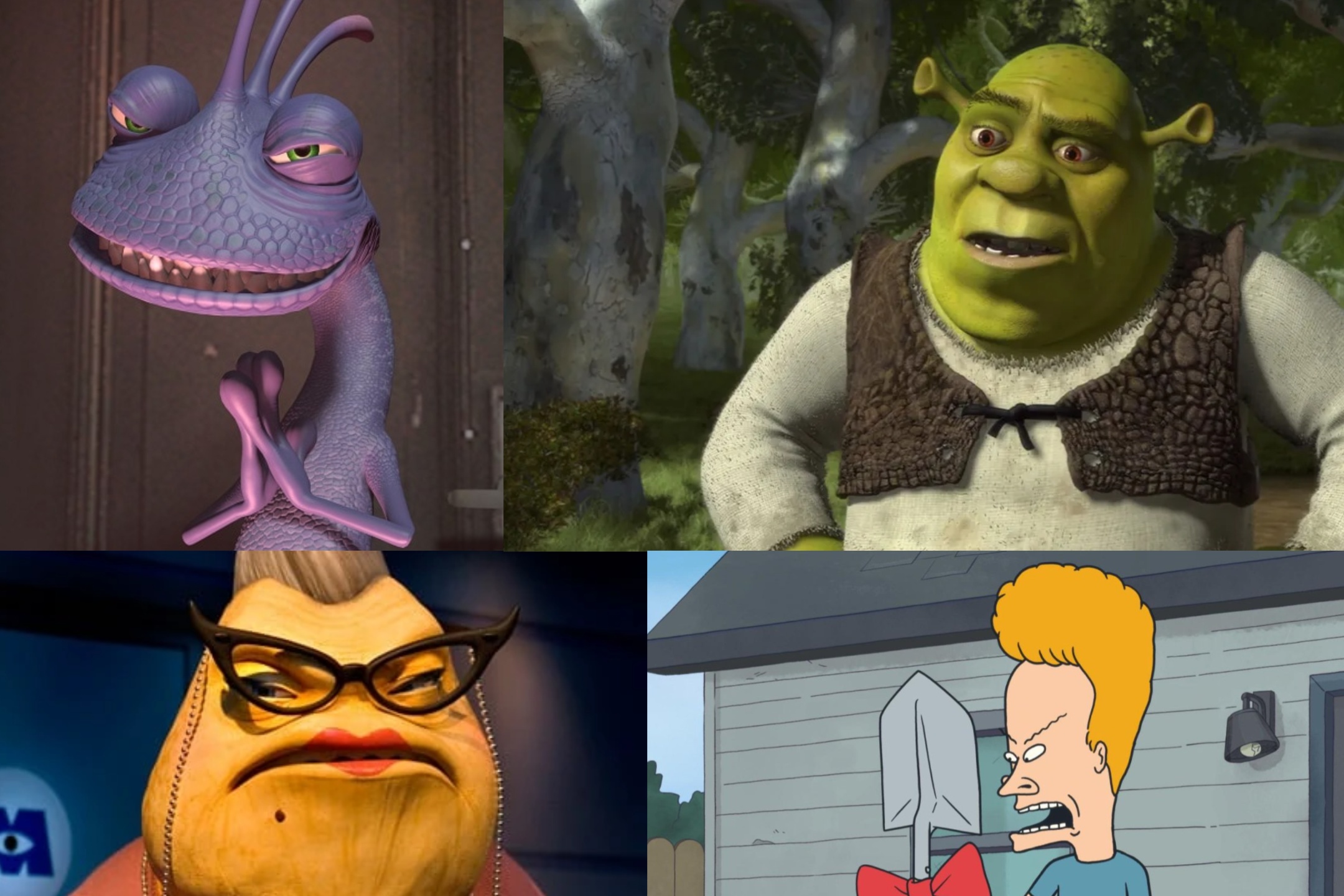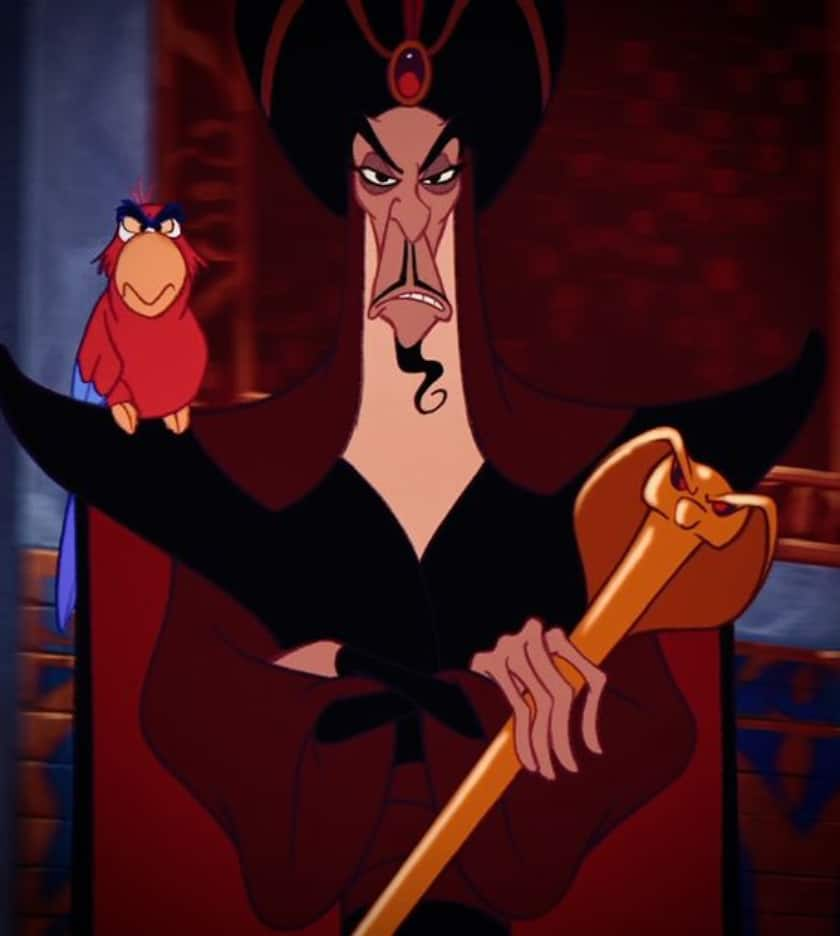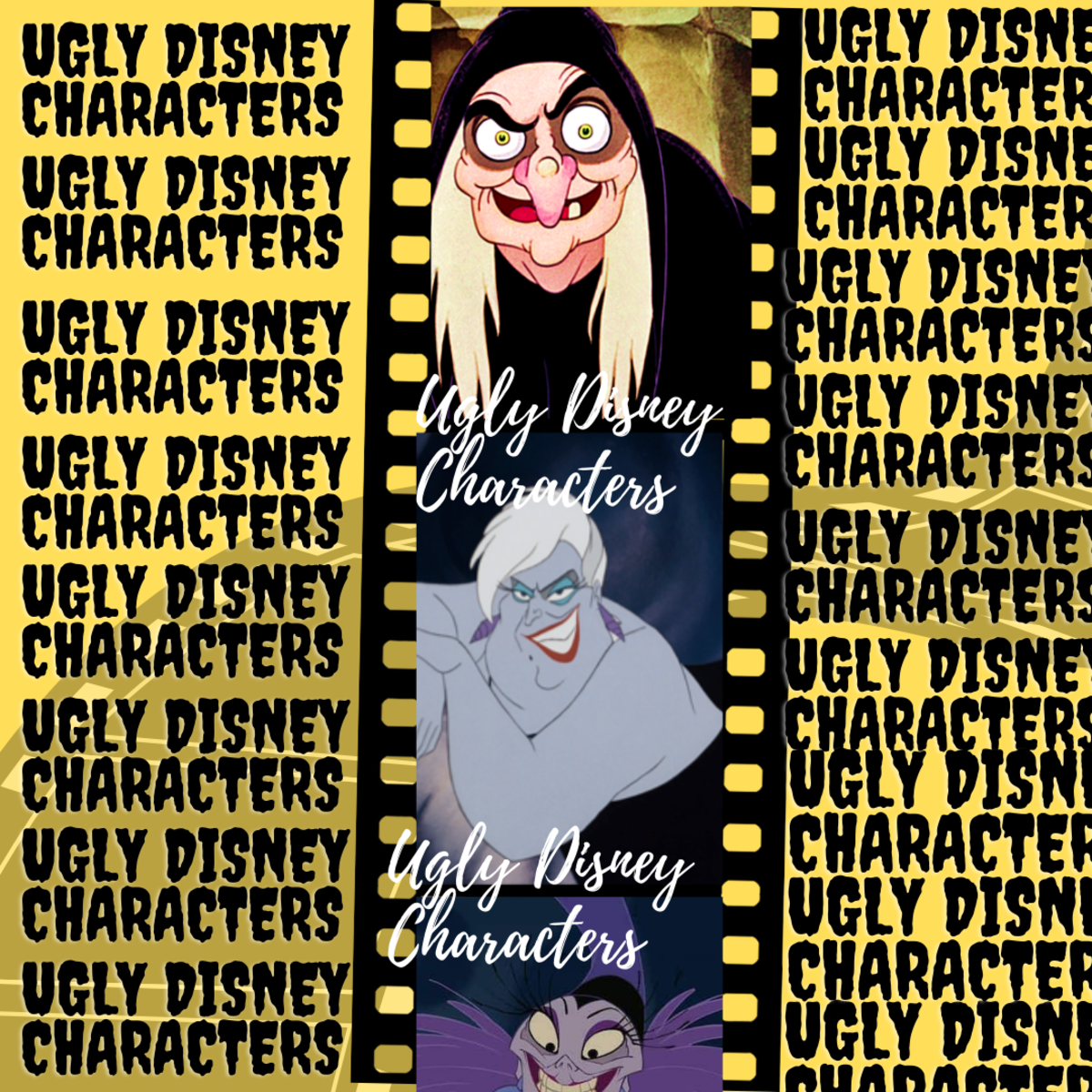Ugly Characters In: Exploring The Beauty Beyond The Surface
Let's face it, folks, we live in a world obsessed with perfection. Everywhere we turn, we're bombarded with images of flawless faces, perfect bodies, and picture-perfect lives. But let's take a moment to appreciate the beauty that lies beyond the conventional standards of beauty. Today, we're diving deep into the world of ugly characters in movies, TV shows, and literature. These characters might not fit society's mold of what's considered attractive, but they sure as heck bring something special to the table.
Ugly characters in pop culture often get overlooked because, well, they don't exactly tick the boxes of what we're taught to find appealing. But here's the thing: sometimes, it's the imperfections that make them unforgettable. Think about it—some of the most iconic characters in storytelling history are those who don't conform to the Hollywood standard of beauty. They're quirky, flawed, and oh-so-real, which is exactly why we love them.
So, buckle up, my friends, because we're about to embark on a journey through the world of ugly characters in media. We'll explore why they matter, how they shape our understanding of beauty, and why they're often the most interesting people in the story. Trust me, by the end of this article, you'll have a newfound appreciation for the characters who don't quite fit the mold.
Read also:How Tall Is Sssniperwolf Unveiling The Stats Behind The Gaming Sensation
Table of Contents
- What Are Ugly Characters?
- Why Are Ugly Characters Important?
- Famous Ugly Characters in Pop Culture
- Characteristics That Define Ugly Characters
- Ugly Characters in Films: Breaking the Mold
- Ugly Characters in Books: Beyond the Page
- Psychological Impact of Ugly Characters
- Ugly Characters and Diversity
- Ugly Characters in Modern Media
- Conclusion: Celebrating the Ugly Characters
What Are Ugly Characters?
Alright, let's start with the basics. What exactly do we mean when we talk about ugly characters? It's not just about physical appearance, although that's often the first thing that comes to mind. Ugly characters in media are those who defy the conventional standards of beauty. They might have scars, disfigurements, or simply an unconventional look that doesn't fit society's ideal. But here's the kicker—they're often some of the most complex and compelling characters out there.
These characters challenge our perceptions of beauty and remind us that there's more to a person than what meets the eye. Whether it's a villain with a twisted smile or a hero with a rugged exterior, ugly characters add depth and richness to the stories we love. They remind us that beauty isn't just skin-deep.
Why Are Ugly Characters Important?
Now, you might be wondering why we should care about ugly characters in the first place. Well, let me tell you, they play a crucial role in storytelling. For starters, they provide a much-needed counterpoint to the endless parade of perfect characters we see in media. They remind us that real life isn't all sunshine and roses; sometimes, it's messy, imperfect, and downright ugly—and that's okay.
Ugly characters also help us explore deeper themes like acceptance, identity, and self-worth. They challenge us to look beyond surface-level appearances and see the beauty in someone's character, their actions, and their story. In a world obsessed with perfection, these characters are a breath of fresh air.
Famous Ugly Characters in Pop Culture
1. The Phantom of the Opera
Let's kick things off with a classic. The Phantom of the Opera is one of the most iconic ugly characters in literature and theater. Sure, he might have a scary mask and a disfigured face, but his story is one of passion, obsession, and heartbreak. He's a complex character who challenges our ideas of beauty and love. Who else could write such hauntingly beautiful music while living in the shadows of the opera house?
2. Shrek
Okay, we can't talk about ugly characters without mentioning Shrek. This green ogre might not fit the mold of a traditional hero, but he's got a heart of gold. Through his journey, we learn that beauty isn't just about looks; it's about who you are on the inside. Plus, who can resist a good ogre with a sense of humor?
Read also:Meet The Remarkable Wife Of Howie Long Her Story Life And Legacy
3. The Ugly Duckling
Let's not forget the classic fairy tale of the Ugly Duckling. This little guy might have been teased and ridiculed for his appearance, but in the end, he turned out to be a beautiful swan. It's a timeless reminder that sometimes, the most unexpected transformations can lead to something truly beautiful.
Characteristics That Define Ugly Characters
So, what makes an ugly character stand out? It's not just about physical appearance, although that's often a big part of it. Here are some common characteristics that define ugly characters:
- Unconventional Looks: Whether it's a scar, a disfigurement, or just an unconventional appearance, ugly characters often stand out visually.
- Complex Personalities: These characters are rarely one-dimensional. They often have rich backstories, conflicting emotions, and a depth that makes them fascinating to watch or read about.
- Challenging Stereotypes: Ugly characters push the boundaries of what we expect from characters in media. They challenge us to rethink our assumptions about beauty and value.
- Emotional Depth: Many ugly characters are driven by deep emotions, whether it's love, anger, or a desire for acceptance. This emotional complexity makes them relatable and memorable.
Ugly Characters in Films: Breaking the Mold
Movies have long been a place where ugly characters can shine. From villains with twisted smiles to heroes with rugged exteriors, films give us a chance to see these characters in action. Some of the most memorable ugly characters in film history have left a lasting impact on audiences worldwide.
Take, for example, the character of Darth Vader from Star Wars. Sure, he might be wearing a helmet, but his voice, presence, and backstory make him one of the most iconic characters in cinema. Or consider Edward Scissorhands, a character who might be physically "ugly" but whose story is one of love, acceptance, and humanity.
Ugly Characters in Books: Beyond the Page
Books have a unique ability to bring ugly characters to life in ways that movies and TV shows can't. Through vivid descriptions and rich storytelling, authors can create characters who are both visually and emotionally compelling. Some of the most memorable ugly characters in literature have left an indelible mark on readers.
Think about characters like Quasimodo from The Hunchback of Notre Dame or Mr. Rochester from Jane Eyre. These characters might not fit the mold of conventional beauty, but their stories are ones of depth, passion, and humanity. They remind us that beauty isn't just about looks; it's about the heart.
Psychological Impact of Ugly Characters
Now, let's talk about the psychological impact of ugly characters. These characters often challenge our perceptions of beauty and force us to confront our own biases. They remind us that beauty isn't just about physical appearance; it's about who we are as people. By portraying characters who defy conventional standards of beauty, media can help break down stereotypes and promote acceptance.
Research has shown that exposure to diverse characters, including ugly ones, can help reduce prejudice and increase empathy. It's a powerful reminder that representation matters, and that we all have something valuable to offer, regardless of how we look.
Ugly Characters and Diversity
Ugly characters play an important role in promoting diversity in media. By including characters who don't fit the mold of conventional beauty, we create a more inclusive and representative world. This diversity is crucial for reflecting the real world, where people come in all shapes, sizes, and appearances.
Moreover, ugly characters often represent marginalized groups who might not see themselves represented in mainstream media. By giving these characters a voice, we help create a more equitable and understanding society. It's a reminder that beauty comes in all forms, and that we should celebrate the diversity of human experience.
Ugly Characters in Modern Media
In today's media landscape, ugly characters are more important than ever. With the rise of streaming services and social media, audiences are demanding more diverse and inclusive representation. Ugly characters are part of this movement, challenging us to rethink our assumptions about beauty and value.
From shows like "The Witcher" to movies like "Wonder," modern media is embracing characters who don't fit the conventional mold. These characters remind us that beauty isn't just about looks; it's about who we are as people. By celebrating the diversity of human experience, we create a world that's more accepting, inclusive, and understanding.
Conclusion: Celebrating the Ugly Characters
As we wrap up our journey through the world of ugly characters, let's take a moment to appreciate what they bring to the table. These characters might not fit society's mold of beauty, but they're some of the most compelling and memorable figures in storytelling. They challenge our perceptions, broaden our horizons, and remind us that beauty isn't just skin-deep.
So, the next time you come across an ugly character in a movie, TV show, or book, take a moment to appreciate them. They might not be conventionally attractive, but they're often the ones who leave the biggest impact. And hey, maybe we can all learn a thing or two from them about embracing our own imperfections and celebrating the diversity of human experience.
Now, it's your turn. Leave a comment below and let me know your favorite ugly character. Or, if you're feeling adventurous, share this article with a friend and start a conversation about the beauty of imperfection. Together, we can celebrate the characters who remind us that being different is what makes us special.
Article Recommendations


